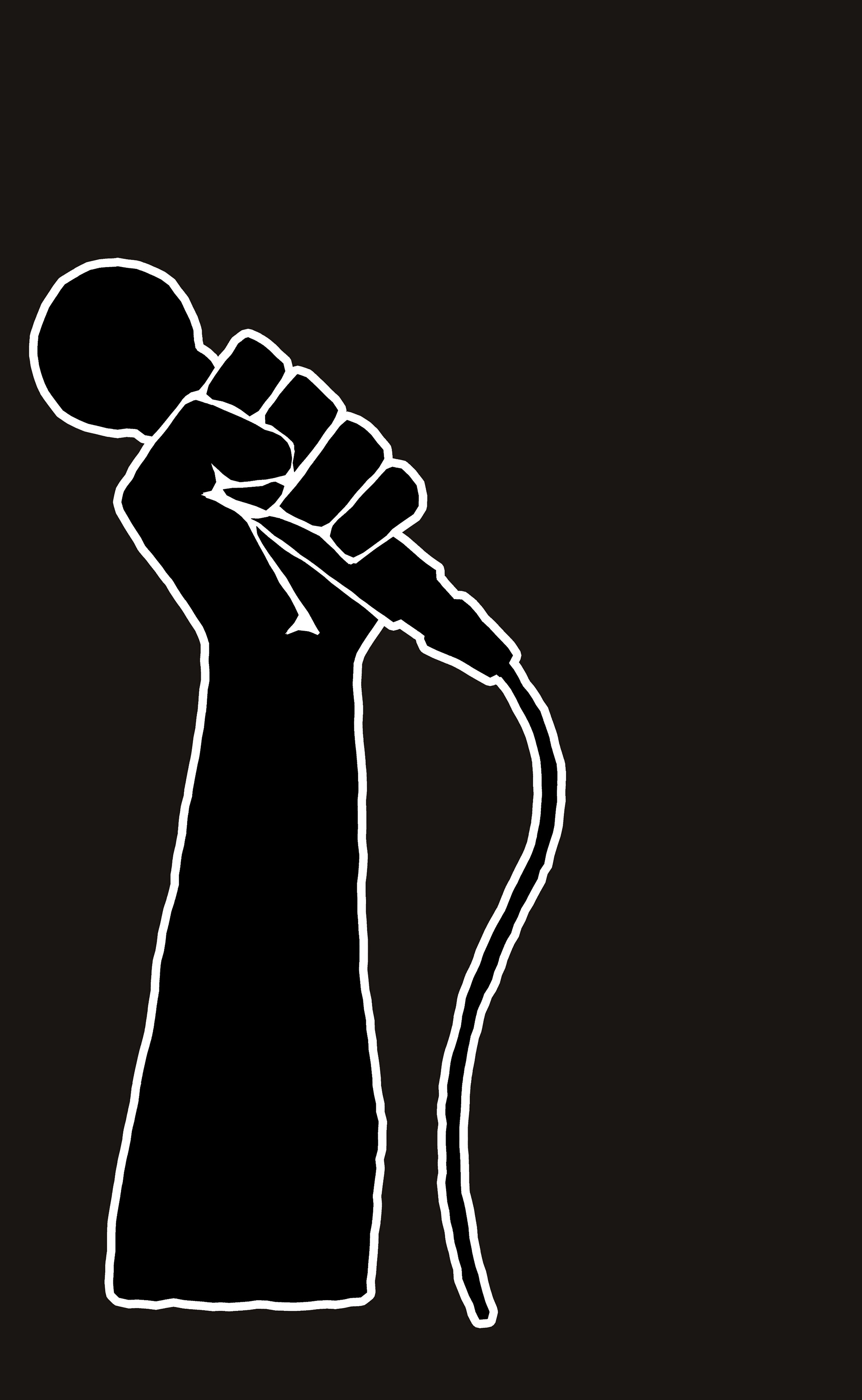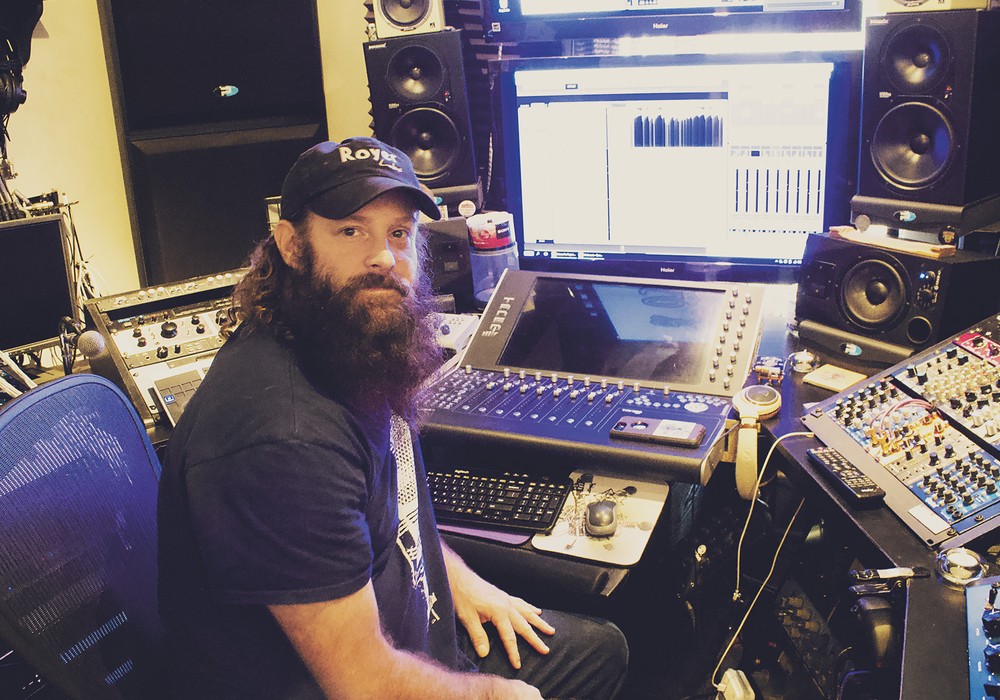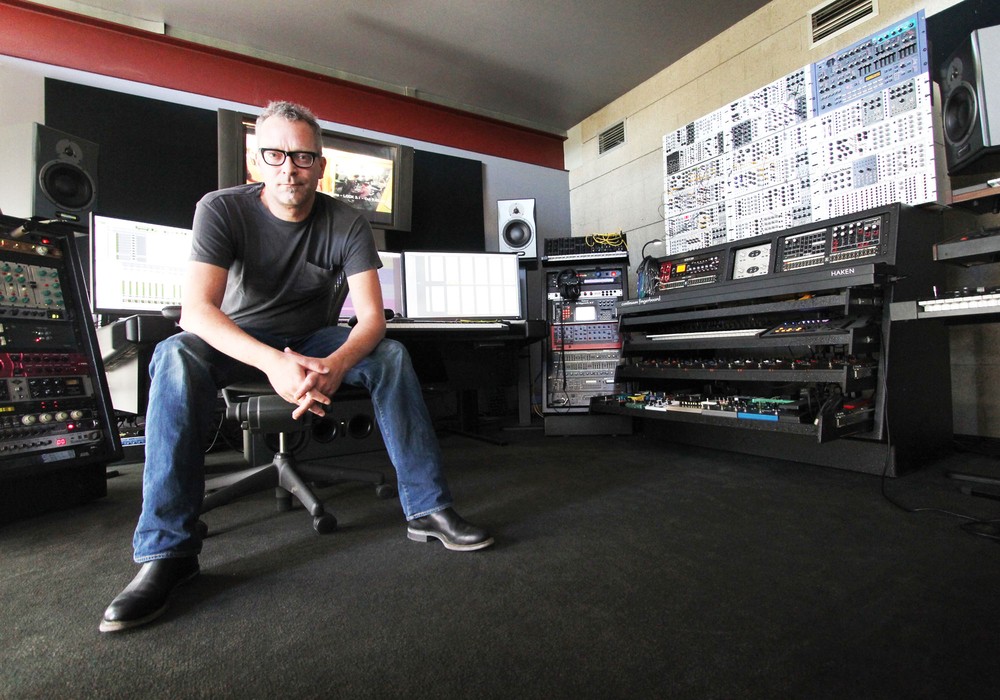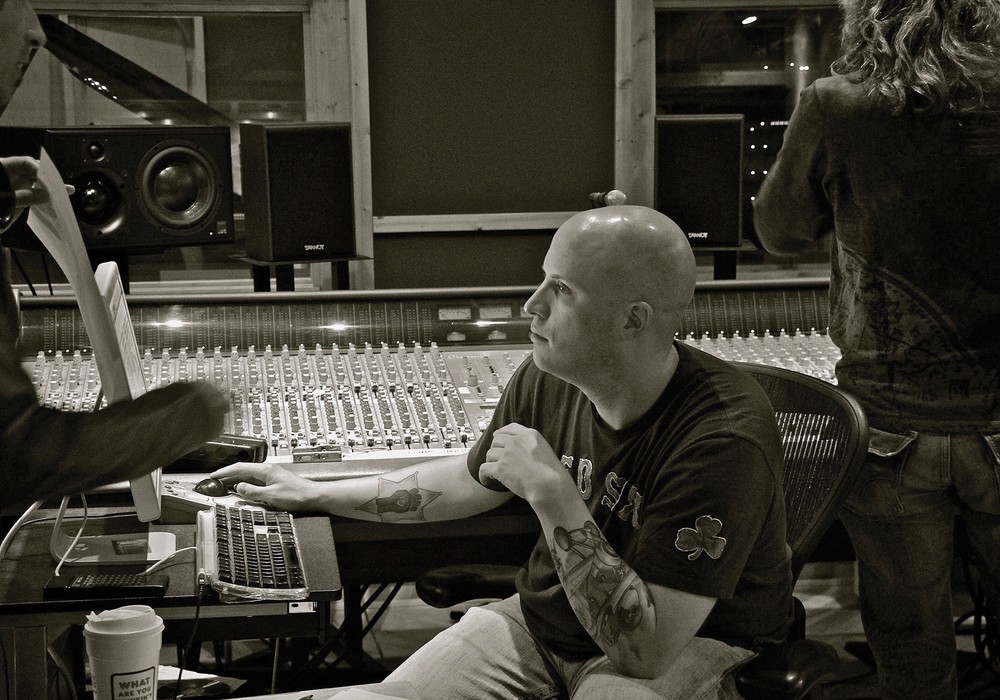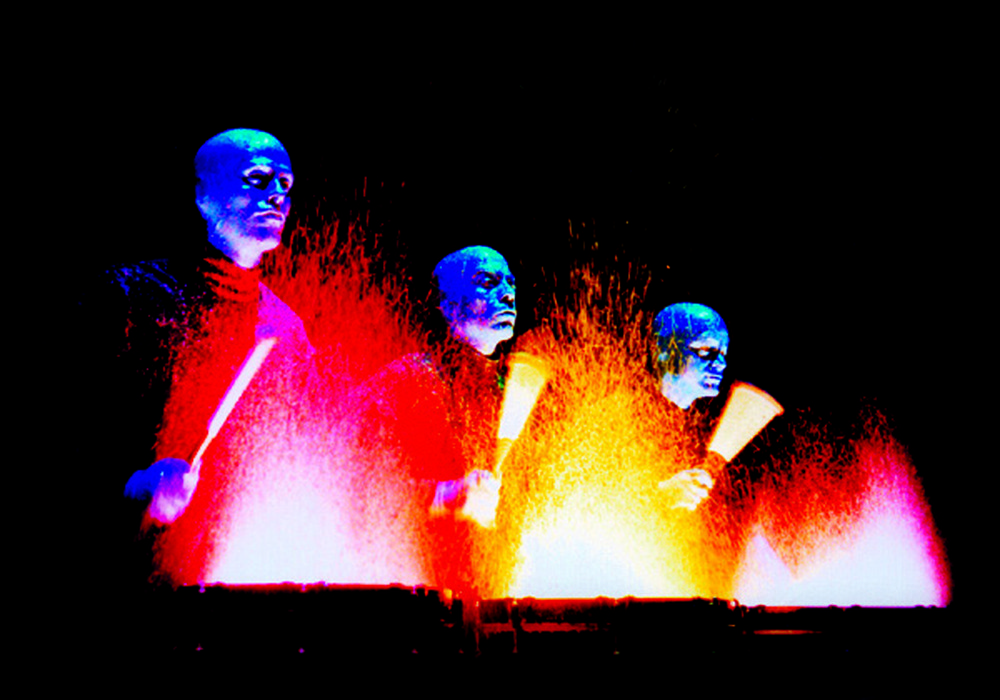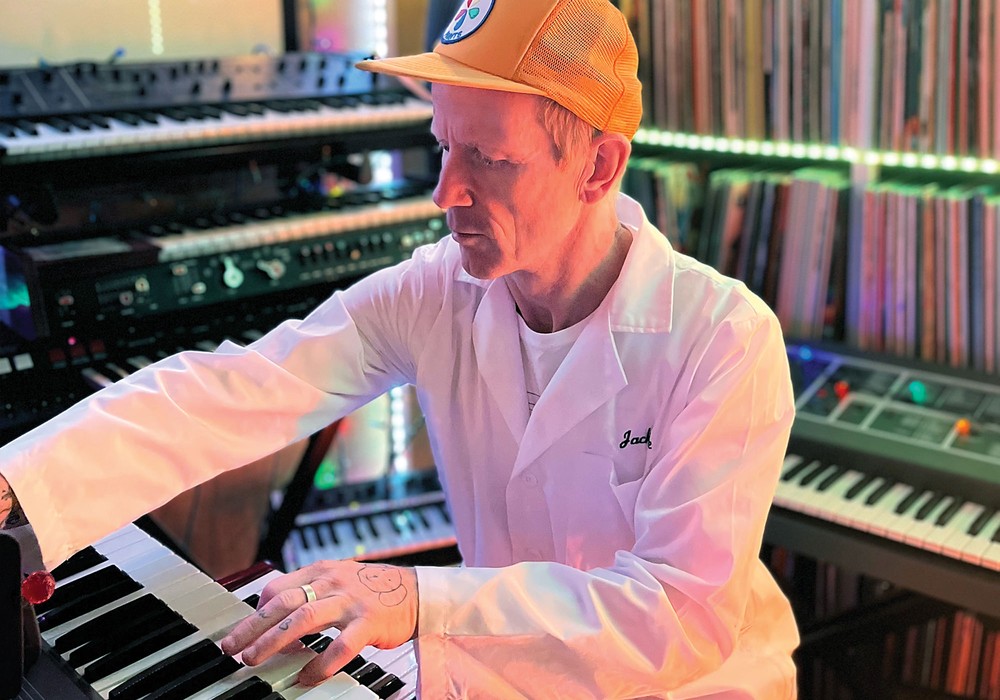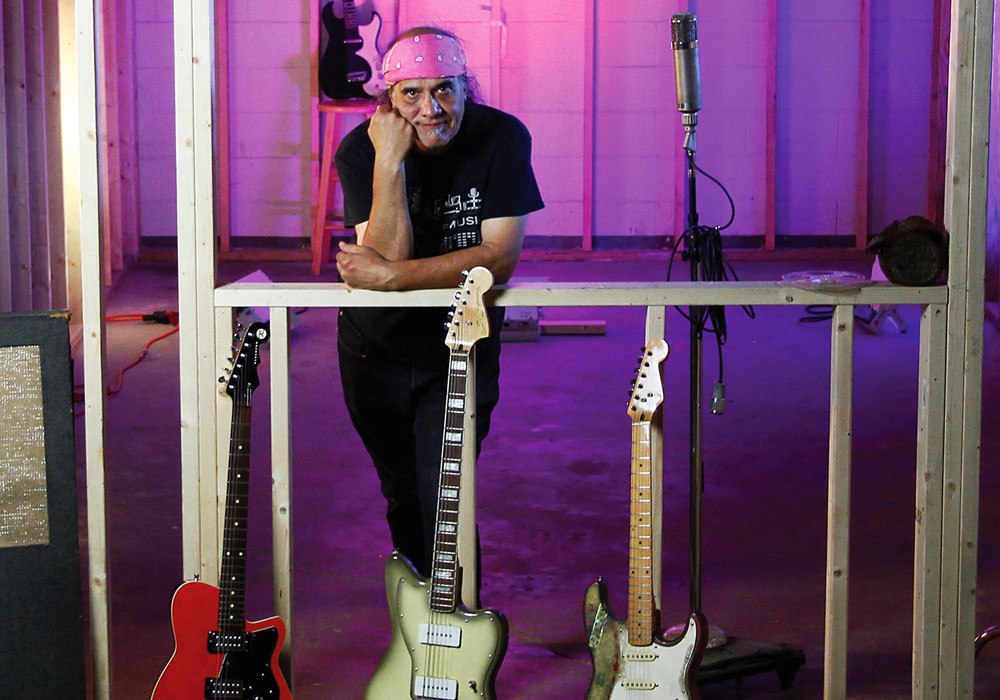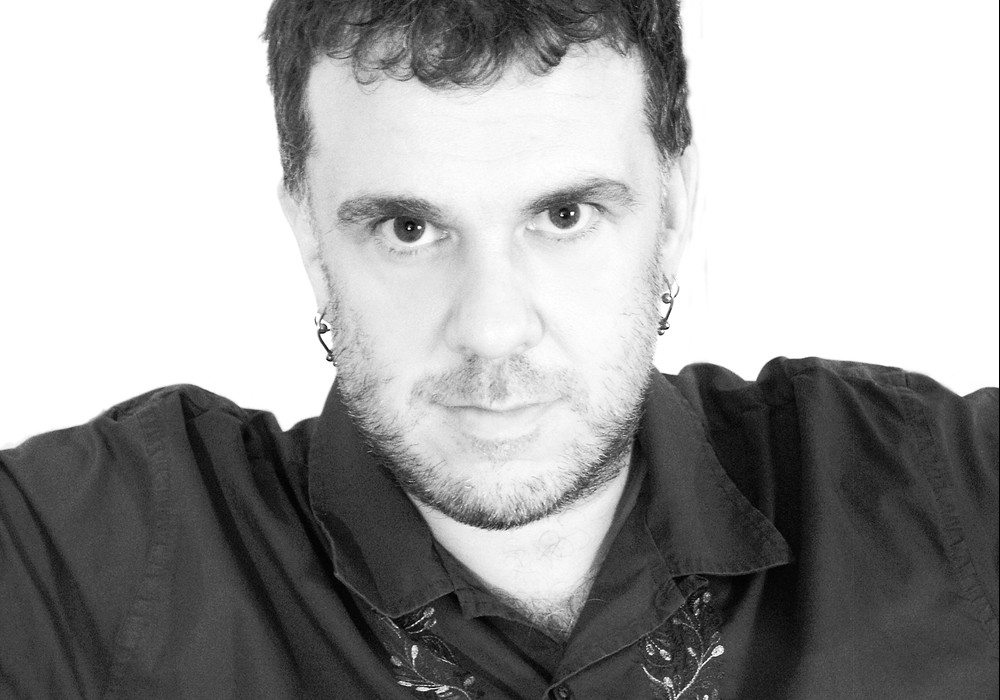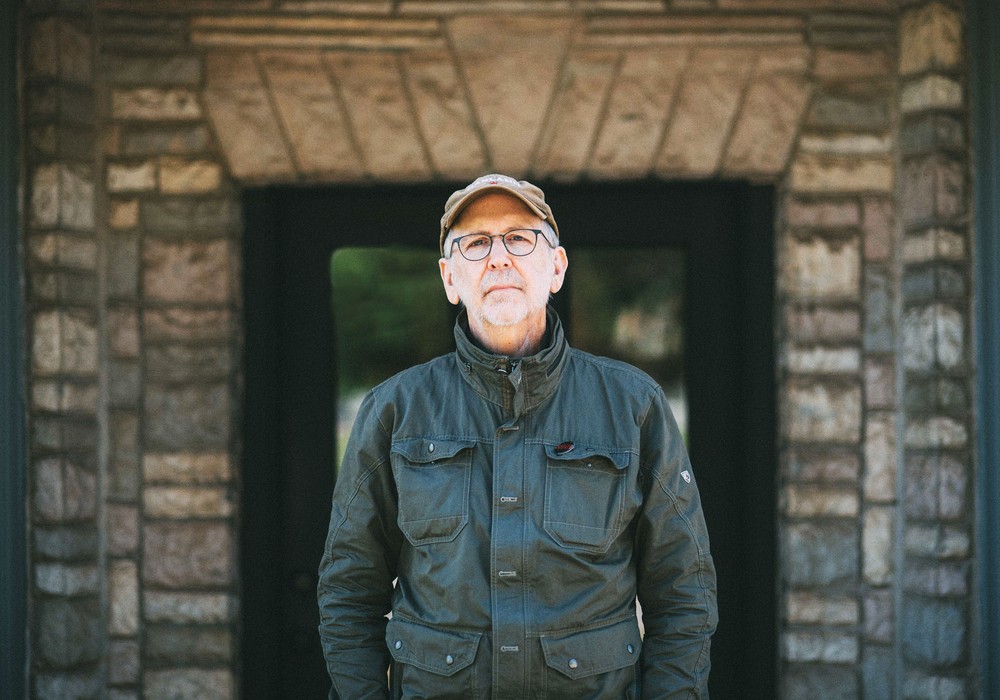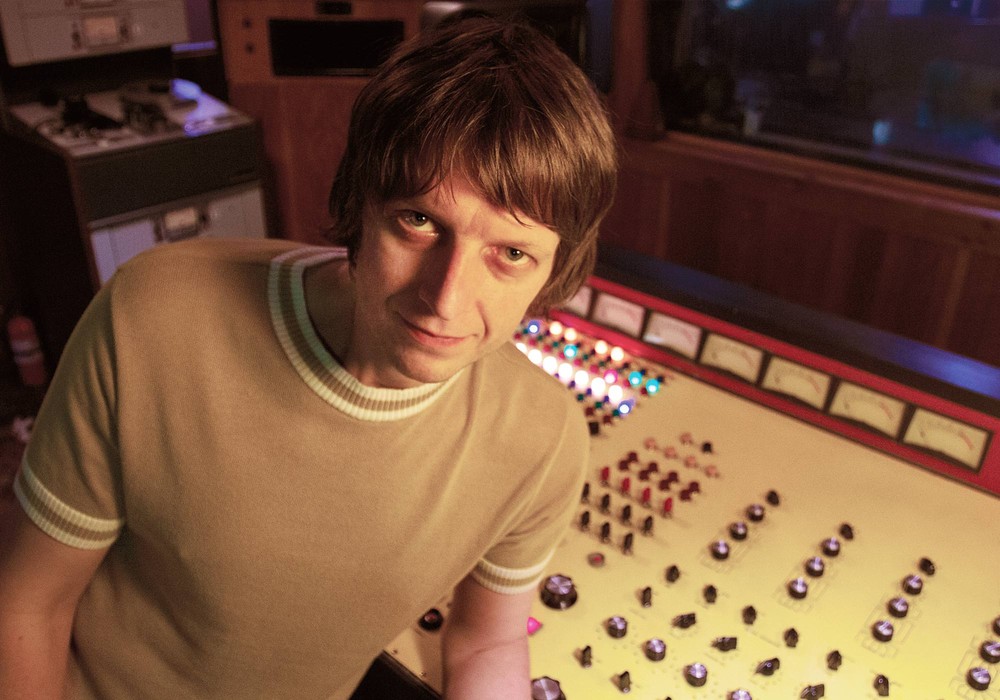I first met Randy Kohrs years ago at the Summer NAMM tradeshow in Tennessee. Randy is known as a hotshot player; a multi-instrumentalist who's respected for his resonator guitar/dobro abilities. But he's also a Grammy award-winning producer, recording engineer, and studio owner at Slack Key Studio in Nashville. Along with a number of solo releases, he's performed and recorded with Continental Divide, Dolly Parton, John Fogerty, John Cowan, Hank Williams III, Jim Lauderdale, and many others. And he continues to stay busy, saying, "I'm constantly going back and forth between tracking and mixing. Right now, we have 12 records going for people. Anytime that there's a down day that's not booked to track, I'm mixing." Randy might be well-versed in old school music, but his embracing of some helpful plug-ins, as well as many newer mic choices, are smart and refreshing. As if all of this wasn't enough, he even has a signature EQ guitar pedal coming out from Benado Effects! I was excited to pick his brain about mic'ing techniques, and I learned a lot during our chat on a hot, muggy summer afternoon.
You started out as a player and a songwriter, right?
I sure did. Getting into recording for me was buying a pair of mics and a stereo preamp so that I could record myself and make sure that I was a better player when I'd get called. It made me sharper. A lot of live players don't take the time to do that, and I was converting from being more of a live player to becoming a session guy.
That's a smart way of approaching it.
Yeah. It's that Midwestern work ethic. I'm from middle America; south-central Iowa.
What happened when you first came to Nashville?
I went to work playing on Lower Broadway; me and an acoustic guitar. When I'd see other singers come into the bar to have a drink, or in between shifts getting ready to play, I'd say, "Hey" and we'd hang out. I'd get them up to play my guitar and sing, and I'd play dobro. People would see me playing other instruments besides acoustic guitar, and I turned into that "utility" guy.
Had you built those skills up on different instruments in Iowa?
Yeah. There weren't that many people up there to play with. If I could play instruments that weren't in a [traditional] band, then I'd get hired more. The more instruments I played, the easier I got the gig. I'd reinvest in nicer instruments, and it snowballed.
So, you had a pretty good collection by the time you hit Nashville?
I did. I hooked up with [luthier] Tim Scheerhorn shortly after I moved to town, and he made my collection of guitars pretty powerful. We've gotten to be such good friends. I still call him sometimes for advice. Half my collection of lap steels I went out to his shop and built myself with him watching over my shoulder. Life lessons that I'll never forget.
We learn by mistakes, that's for sure.
It's the same way with recording. You're not going to come out of the chute and make the most incredible sounding record the first time out. You're going to have to stumble and fall. Especially when it comes to new software. I use Steinberg Cubase here, and their VariAudio system is so wonderful for time alignment and polishing intonation. I don't like to get carried away. I would rather make a singer sing a lot and then make a great comp. It's all budgetary. If there's not a budget for a singer to sing a song for an hour or two, and you have a lot of takes to pick from, then it comes down to having to use software more. I have to weigh my options against the budget every time.
I know there's a wide variety of sessions you do.
Yeah. More so than ever. When I first moved to town, I played on quite a few bluegrass records. Obviously, the resonator guitar is a very notable instrument in the world of bluegrass.
Right. You became mostly known for your dobro work early on.
Right, and high harmony singing. Those were my two big calls. I started getting work on a lot of records. At one point in the ‘90s, I was on almost all of the prominent records that were done by individual acts; ones that weren't bands that already had a dobro player.
Right, or they hired Jerry Douglas.
Well, Jerry kind of bowed out right in that era. He said, "Hey, there's this new kid who moved to town. Here's his number. You won't regret it." Jerry was so nice to me.
You don't even need a business card if that happens!
Exactly. Of course, Rob Ickes has been here in the scene, and Andy Hall was here for a while. There have been some wonderful players, and we all learned off of each other. I don't feel a competitive bone in my body against any of them, because we are all working.
What were you picking up about recording techniques in studios as a session player?
For some of my favorite records that I got to work on, Chuck Ainlay [Tape Op #97] or Ed Seay were engineering. One of my favorites is...
